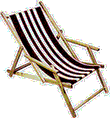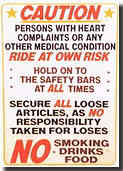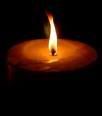Monday, April 12, 2010
Rae Armantrout
Here's a short bio & some poems by Rae Armantrout, who just won a Pulitzer for her collection, Versed.
Much is made of her connection to "West Coast Language Poets." But one can feel many influences in her poems including her early teacher, Denise Levertov, a very popular poet in the Sixties, & a poet of lovely refinement.
For me, Language poetry was - initially - a poetry of experimental procedure & kind of distancing that tried to deal with the self-referential pronoun "I." I liked it because it often incorporated "found poetry" & some of the poets used methods inspired by the chance music composition of composer John Cage. I was, in Jersey, surrounded by older poets who wrote about their children, grandchildren, spouses, ex-spouses, & suburban lifestyles, or were "witnessing" to political causes & identity movements. None of this interested me very much as a poet. I figured whatever mattered to a poet would find its way into the poems without forcing it in. I was more interested in the areas where poems turned into prose, advertising copy, anecdotes, or just talk. I was also fascinated with the idea of how to be a poet without people even knowing one was a poet, & with artists like Mary Caroline Richards, a potter who embraced imperfections, accidents, & mistakes in the process of making art. I never took to the theater of the poetry "slam," which favored extroverts & actors.
Most poets don't assign themselves to "schools" of poetry, although we don't mind being adopted by them if it gets us published in a magazine. Being close to New York City, & near the places William Carlos Williams wandered through & described, Jersey poets tend to make tossed salad poetry, the same way Jersey rockers move through musical genres without much stretching. Poetics is not a major topic when Jersey poets gather in a diner after a reading at a library or bookstore. Maybe in isolated college towns. I've been to a few of those in upstate NY & PA & been asked questions about my writing I couldn't answer simply because: A. I couldn't be specific enough. B. They were discussing writers & poets I'd never heard of or I'd heard of but hadn't read. My creative point-of-view was suited to free form WFMU & then was shaped by it. Before WFMU began streaming broadcasts, it was impossible to explain WFMU to anyone who had never listened to the station. Even in Jersey, few poets were familiar with the station outside of Hoboken & New Brunswick, where poets & bands were often featured on the same stages in bars. Poets used to send their resumes to me at the station, like I was doing an NPR thing. Thank you for your poem "Resume." But some poets sent me homemade cassette tapes. I loved those, & even invited some of the poets to drop by & hang out. They understood that my weekly program was my weekly poem/assemblage & there was room in it for other poets, just as there was room in it for all kinds of music.
In the '90s, I became less interested in going out & being a poet for other poets at readings & pushing to make a place for myself. I compared it to dreams where you're walking around in public in your underwear. The readings themselves were often tough to sit through, & I found myself sneaking out after the social break between the featured poets & the open reading, which I knew was not polite but I couldn't help it. I didn't enjoy reading in opens. Podium speaking was hard for me, & I at opens I had to stop at the very moment I'd gotten over my stagefright.
"If a nation expects to be ignorant and free, in a state of civilization, it expects what never was and never will be." Thomas Jefferson
Much is made of her connection to "West Coast Language Poets." But one can feel many influences in her poems including her early teacher, Denise Levertov, a very popular poet in the Sixties, & a poet of lovely refinement.
For me, Language poetry was - initially - a poetry of experimental procedure & kind of distancing that tried to deal with the self-referential pronoun "I." I liked it because it often incorporated "found poetry" & some of the poets used methods inspired by the chance music composition of composer John Cage. I was, in Jersey, surrounded by older poets who wrote about their children, grandchildren, spouses, ex-spouses, & suburban lifestyles, or were "witnessing" to political causes & identity movements. None of this interested me very much as a poet. I figured whatever mattered to a poet would find its way into the poems without forcing it in. I was more interested in the areas where poems turned into prose, advertising copy, anecdotes, or just talk. I was also fascinated with the idea of how to be a poet without people even knowing one was a poet, & with artists like Mary Caroline Richards, a potter who embraced imperfections, accidents, & mistakes in the process of making art. I never took to the theater of the poetry "slam," which favored extroverts & actors.
Most poets don't assign themselves to "schools" of poetry, although we don't mind being adopted by them if it gets us published in a magazine. Being close to New York City, & near the places William Carlos Williams wandered through & described, Jersey poets tend to make tossed salad poetry, the same way Jersey rockers move through musical genres without much stretching. Poetics is not a major topic when Jersey poets gather in a diner after a reading at a library or bookstore. Maybe in isolated college towns. I've been to a few of those in upstate NY & PA & been asked questions about my writing I couldn't answer simply because: A. I couldn't be specific enough. B. They were discussing writers & poets I'd never heard of or I'd heard of but hadn't read. My creative point-of-view was suited to free form WFMU & then was shaped by it. Before WFMU began streaming broadcasts, it was impossible to explain WFMU to anyone who had never listened to the station. Even in Jersey, few poets were familiar with the station outside of Hoboken & New Brunswick, where poets & bands were often featured on the same stages in bars. Poets used to send their resumes to me at the station, like I was doing an NPR thing. Thank you for your poem "Resume." But some poets sent me homemade cassette tapes. I loved those, & even invited some of the poets to drop by & hang out. They understood that my weekly program was my weekly poem/assemblage & there was room in it for other poets, just as there was room in it for all kinds of music.
In the '90s, I became less interested in going out & being a poet for other poets at readings & pushing to make a place for myself. I compared it to dreams where you're walking around in public in your underwear. The readings themselves were often tough to sit through, & I found myself sneaking out after the social break between the featured poets & the open reading, which I knew was not polite but I couldn't help it. I didn't enjoy reading in opens. Podium speaking was hard for me, & I at opens I had to stop at the very moment I'd gotten over my stagefright.
Labels: about writing, poem, what I'm reading














